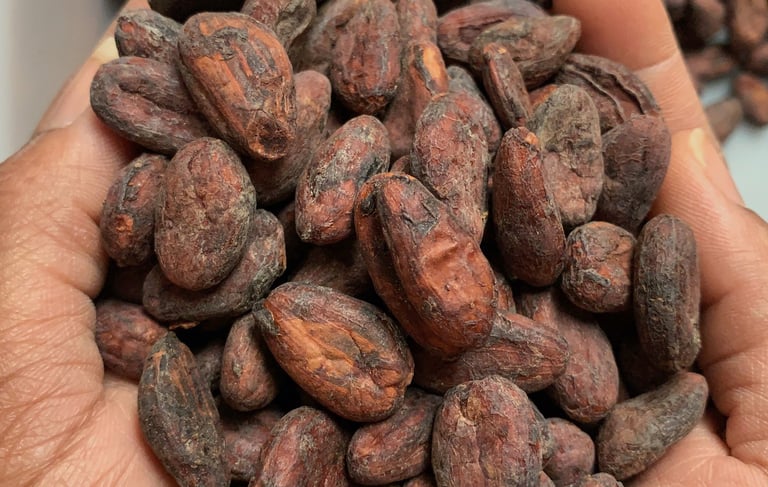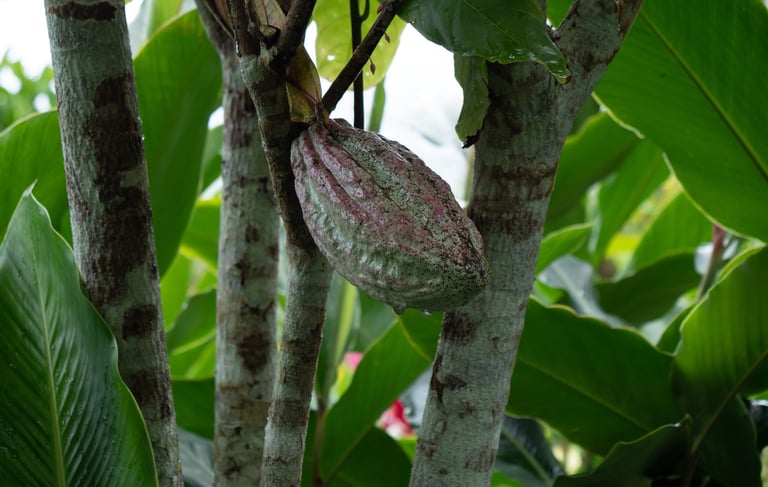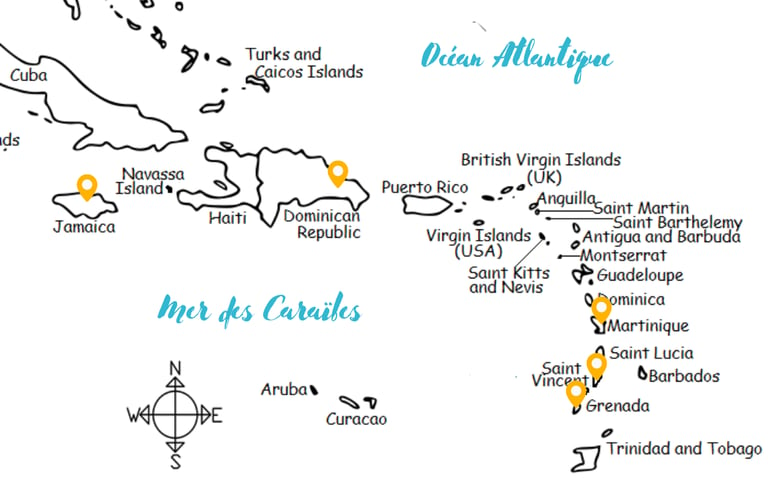Bean to bar
What is bean to bar chocolate ?
All chocolates are made from cocoa beans, however, "Bean to Bar" or craft chocolate, refers to a very specific way of making chocolate.
Most chocolate comes from industrial production. The manufacturing process is geared towards standardizing the taste and texture of the product. This results in very high roasting temperatures, the use of a large amount of cocoa butter, and the addition of soy lecithin and vanillin (vanilla flavouring).
On the other side, bean to bar chocolate, comes from an artisanal manufacturing process, highlighting the authentic character and unique aromas of each cocoa.


Bean to Bar process steps
Bean to bar process includes many steps to achieve exceptional chocolate.
The beans are meticulously sorted then roasted at low temperature and crushed. The cocoa nibs are separated from their shell, combined with cane sugar in a granite stone crusher and turn into chocolate after 2 to 3 days. This chocolate mass is matured for 3 to 4 weeks before being poured into delicious chocolate bars. This meticulous manufacturing process creates authentic, quality chocolate, highlighting the natural aromas of cocoa beans.


Bean to bar chocolate a philosophy
Much more than mastering all the stages of chocolate manufacturing, Bean to Bar involves having an approach of quality, transparency and ethics.
Beans from farms where the work of producers is paid at fair value and where actions in favor of biodiversity are carried out. Quality cocoa, traceable to the region or plantation.
A chocolate composed of simple and natural ingredients which highlights and transcribes the terroir of the cocoa's country of origin.


Caribbean cocoas
Cocoa cultivation was introduced to the Caribbean islands in the 16th and 17th centuries by French and Spanish colonists. At its peak, Caribbean production dominated the cocoa market. It suffered a decline during the 20th century, with the introduction of banana cultivation, which was more lucrative and less demanding. The revival of Caribbean cocoa only arrived in the 2000s, driven by a quality approach and a return to traditional crops. Caribbean cocoas are recognized worldwide for their quality and aromas, although they represent only 2% of global cocoa production. Which makes them rare cocoas!


